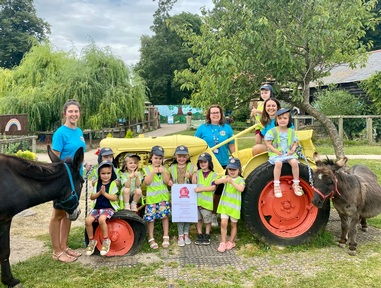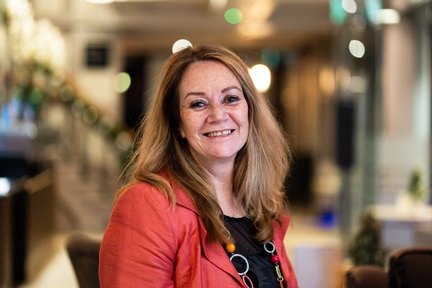Internet overtakes television as top media pastime for five-year-olds
Children as young as five are spending around 15 hours each week on the internet, overtaking the time spent watching a television for the first time, according to new research.

Ofcom’s report on Children and Parents: Media Use and Attitudes, reveals that even pre-schoolers, aged three and four-years-old, are spending around eight hours each week online - up an hour and a half from last year.
Jane Rumble, Ofcom director of Market Intelligence said: “Children’s lives are increasingly digital, with tablets and smartphones commanding more attention than ever.”
Digital childhood
According to Ofcom’s research, YouTube is one of the most popular online destinations for children to watch content, with around three quarters of those aged five to 15 using the video site. Nearly 40 per cent of pre-school children (aged three and four-years-old) are also regularly watching YouTube videos, and typically pick ‘TV content’ such as cartoons and mini-movies.
Television still plays an important role in children’s lives with nine in 10 still watching the ‘big screen’ every day, particularly during family viewing times after 6pm.
Digital devices are also more widespread among young children, with a third of pre-schoolers owning their own media device such as a tablet or games console.
However, parents admitted they were less concerned about time spent in front of the television than other media, as they increasingly consider it an important part of family life, the report said.
Less than a quarter of 1,362 parents said they were concerned about the amount of time spent in front of the television, while 35 per cent complained about internet use. "Parents are more concerned with managing the smartphone, tablet or, for boys in particular, the games console," the report said.
No guidelines
Dr Smith, who runs the Babylab, Birkbeck’s Centre for Brain and Cognitive Development, is worried that one of the dangers of screen time is that it can displace face to face communication between both adults and children and also children and their peers.
Speaking at the Pre-School Learning Alliance’s annual conference, he said: “The big issue is that there are no guidelines in the UK. We need to start lobbying for guidelines.
“Children adapt to the environment they are in. Back in 2007, iPhones were produced with multi-touch interfaces. In 2010, iPads, which were the first successful tablet computers, were released onto the market.
“Prior to this, children only had access to computers but it takes a while for children to develop their fine motor skills and without fine motor skills it is very hard to use keyboards and mouses.
“Touchscreens take this difficulty away and have very quickly become a significant part of children’s sensory environment.”
Shared reading
Despite the increasing use of digital devices in children’s lives, Ofcom’s research shows that reading remains the third most popular activity with children, whilst many families still enjoy a traditional bedtime routine.
Professor Peter Fonagy, head of the research department of clinical, educational and health psychology at University College of London (UCL), said: “A strong, lasting bond between families and children is founded on shared interests, excitement, and wonder - all of which can be achieved by reading for pleasure, which opens doorways to safely explore new worlds and concepts that fire their imaginations.
“Children have a multitude of developmental needs that can all be served simultaneously by reading together with parents or carers they love and trust. The long-term cognitive and emotional benefits are clear – reading together promotes optimal interpersonal, developmental and educational functioning in later life."
Latest News
 24-Apr-24
Find out the top nurseries in 2024
24-Apr-24
Find out the top nurseries in 2024
 06-Jun-23
UK's top nurseries in 2023 revealed
06-Jun-23
UK's top nurseries in 2023 revealed
 16-Dec-22
Winter Wonderland: Ice sculptures, aerial acrobatics and white knuckle rides
16-Dec-22
Winter Wonderland: Ice sculptures, aerial acrobatics and white knuckle rides
 28-Nov-22
5 mins with Caroline Wright, early childhood director at Bright Horizons
28-Nov-22
5 mins with Caroline Wright, early childhood director at Bright Horizons
 25-Nov-22
Camilla gives nursery children Paddington bears left as tribute to Queen Elizabeth II
25-Nov-22
Camilla gives nursery children Paddington bears left as tribute to Queen Elizabeth II